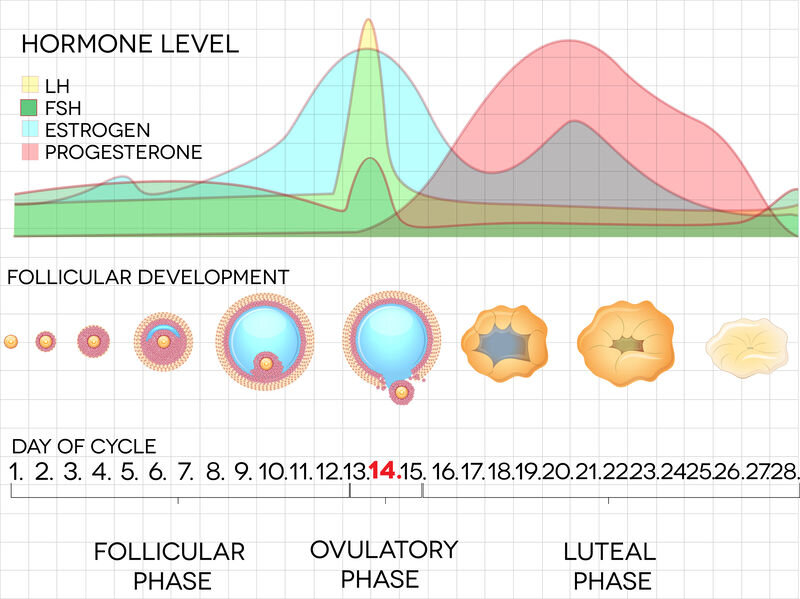How Natural Fluctuations in Women’s Hormones Affect Their Relationships
March 23, 2020 by Justin Lehmiller
For women who aren’t using any kind of hormonal contraception, their bodies undergo a series of natural fluctuations in hormone levels across the menstrual cycle. Studies have found that these hormonal changes appear to be linked to a variety of changes in sexual behavior, from sexual fantasy content to flirtation patterns.
New research suggests that they may also affect the way that women feel about their romantic partners in long-term relationships—and the way that their partners feel about them, too.
The study, published in the journal Biological Psychology, is the subject of a recent article I published over on The Kinsey Institute Research Blog. Researchers in the Netherlands studied thirty-three young heterosexual couples in which the female partners were not using hormonal contraception.
Over approximately a two-week period, they collected daily measurements of hormone levels (from urine samples) and surveyed participants regarding how they felt about their sex lives and relationships, as well as their mental well-being.
They found several interesting patterns in the data. For example, as women approached ovulation and the hormone estradiol increased, both women and men reported thinking that their partner perceived the relationship more negatively. At the same time, women also reported less attraction to their partners and viewed their partners more negatively, and men reported less interest in sex.
During this peak in estradiol, men also reported lower psychological well-being, and this appeared to stem from them perceiving their partners as being less interested in them.
However, following ovulation—a time when progesterone rises and estradiol drops—women’s evaluations of their partners became more positive.
So why did these changes occur? That we don’t know for sure, but the researchers propose an evolutionary explanation: given that the negative changes in partner evaluation occurred during peak fertility, perhaps women have evolved to subtly distance themselves from their relationship partners at that time in order to capitalize on other potential mating opportunities that might come along.
To learn more about this research, including how changes in testosterone were linked to relationship changes in men and women, check out the full article over on The Kinsey Institute Research Blog.
Want to learn more about Sex and Psychology ? Click here for previous articles or follow the blog on Facebook (facebook.com/psychologyofsex), Twitter (@JustinLehmiller), or Reddit (reddit.com/r/psychologyofsex) to receive updates. You can also follow Dr. Lehmiller on YouTube and Instagram.
To learn more about this research, see: Righetti, F., Tybur, J., Van Lange, P., Echelmeyer, L., van Esveld, S., Kroese, J., … & Gangestad, S. (2020). How reproductive hormonal changes affect relationship dynamics for women and men: A 15-day diary study. Biological Psychology, 149, 107784.
Image Source: 123RF
You Might Also Like:

Dr. Justin Lehmiller
Founder & Owner of Sex and PsychologyDr. Justin Lehmiller is a social psychologist and Research Fellow at The Kinsey Institute. He runs the Sex and Psychology blog and podcast and is author of the popular book Tell Me What You Want. Dr. Lehmiller is an award-winning educator, and a prolific researcher who has published more than 50 academic works.
Read full bio >


